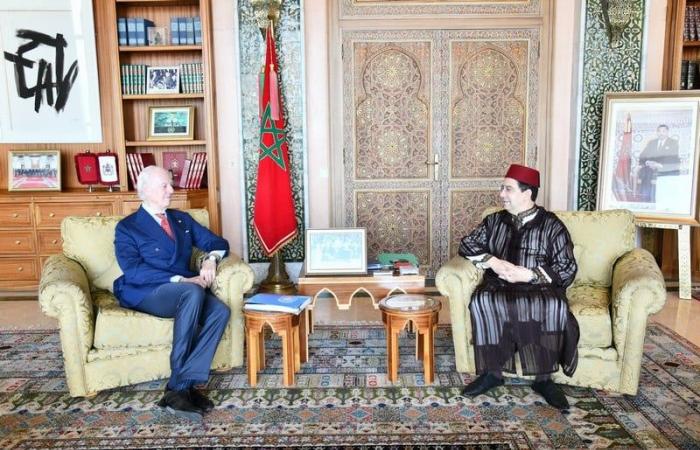The briefing of the UN envoy to the Sahara, Staffan de Mistura, before the Security Council, last Wednesday, included a proposal that had previously sparked controversy and returned the Moroccan Sahara conflict to the stage of former envoy James Baker III and the idea of “partition” between north and south.
In the details of his briefing, a copy of which was provided to Hespress, de Mistura reviewed the state of the conflict 3 years after his appointment by the UN Secretary-General, António Guterres, and how the positions of the four parties have not changed, before he released the idea of “dividing” the Moroccan Sahara into “two parts.” He said: “The parties to the conflict were informed of this proposal, which had previously been proposed by my predecessor, James Baker III.”
De Mistura added that “this proposal, which came more than 20 years ago, could create an independent state in the southern part of the Sahara, leaving the northern part of the Kingdom of Morocco, while ensuring international recognition.”
This “partition,” according to the Italian diplomat’s briefing, could achieve the two demands of both parties to the conflict: sovereignty for Morocco, and “self-determination and independence” for the Polisario Front.
De Mistura did not hide that his “proposal” received praise from some countries that he did not name (referring to Algeria and South Africa), while it was rejected by the Kingdom of Morocco and the Polisario Front. He said in his defense: “I believe that the proposal was worthy of being presented, and I was ready to work on it, but the two parties (Morocco/Polisario) rejected it, and it was my responsibility to inform the Security Council of that day.”
The UN envoy moved to the desert to talk about international support for the Moroccan autonomy proposal, stating that “the Moroccan autonomy plan, which appeared to be gaining great momentum, pushes us to the necessity of a great understanding of it and how to implement it,” considering that “the time has come to explore the methods that Morocco envisions in a way that tangible. For this exploration to take place, it is necessary for Morocco to provide details of its vision, and I felt comfortable in this regard during my individual consultation with the Moroccan Foreign Minister, Nasser Bourita, last month, as Morocco understands the necessity of explaining and expanding the autonomy proposal.”
De Mistura set a period of six months within which a solution must be reached, or his position must be reconsidered by the Secretary-General of the United Nations, António Guterres.
De Mistura’s speech before the Security Council reviewed 3 years of his assuming office, and spoke of the continuation of the same indicators that he repeatedly presents in his briefings, where “the humanitarian situation in the Tindouf camps is very critical, and the mission of the MINURSO mission must be extended again, and the dilemma of a ceasefire is not It is still being overtaken by the Polisario Front…”
Guterres’ envoy considered that the conflict between Morocco and Algeria “significantly affects finding a solution to this conflict,” adding that “many changes have occurred recently, including King Mohammed VI’s speech before Parliament about the Sahara, the ruling of the European Court of Justice, and the French recognition of the Moroccan status of the Sahara.”






